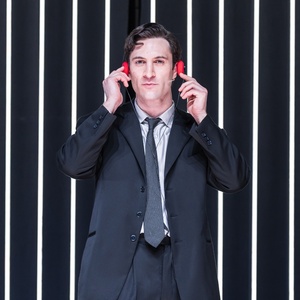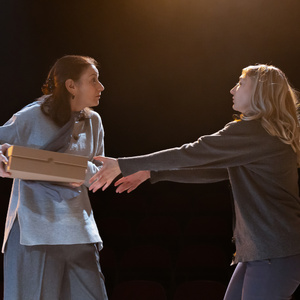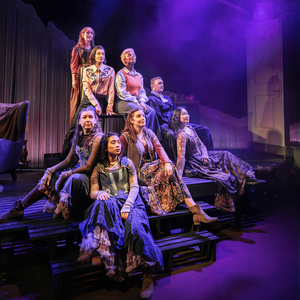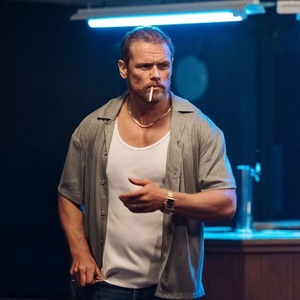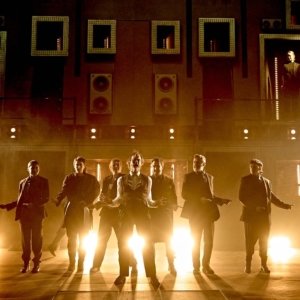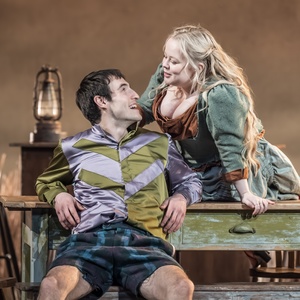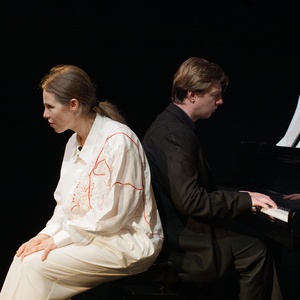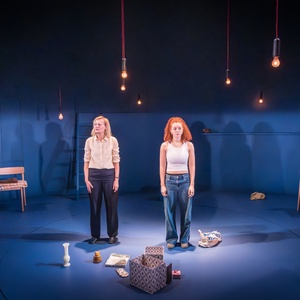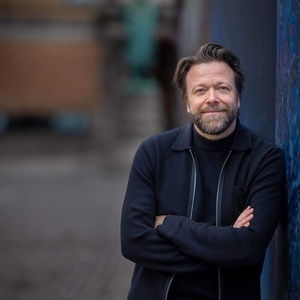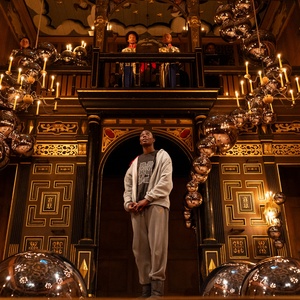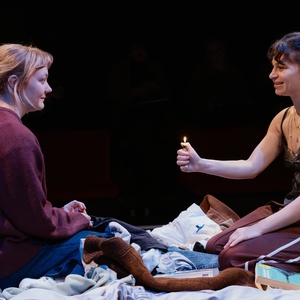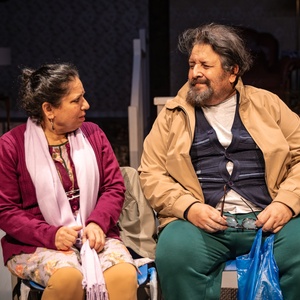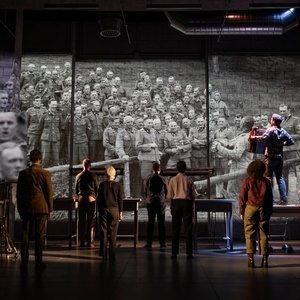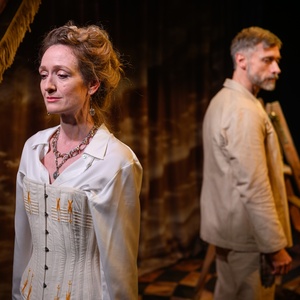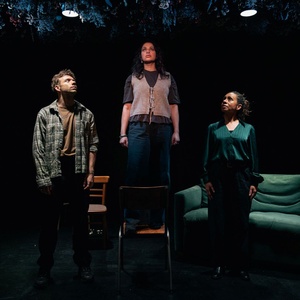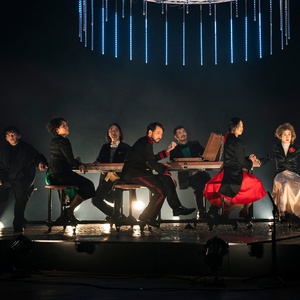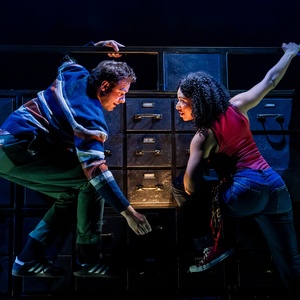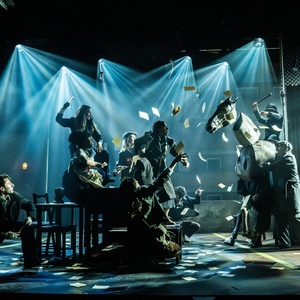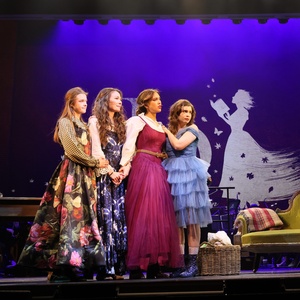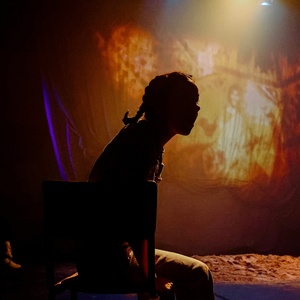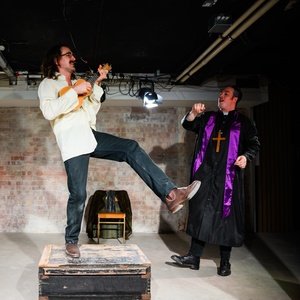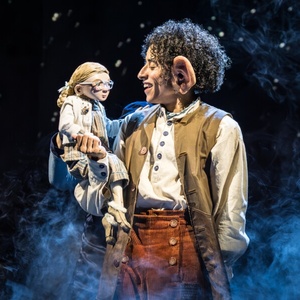Cindy Marcolina

Member of the Critics' Circle (Drama) with a master's in dramaturgy. Also a script reader and huge supporter of new work. @Cindy_Marcolina on X; cindymarcolina.bsky.social on BlueSky
MOST POPULAR ARTICLES
February 26, 2026
The sudden passing of her father kick-starts a profound identity crisis in Lenore. Why didn’t her life dramatically change when he died? She remembers witnessing what the loss of a parent did to a schoolmate when she was younger, that instant transformation into a shell of who she was beforehand. She’s angry that she doesn’t feel any differently about him than she did when he was alive. Music and movement accompany the poetic exegesis of Yanina Hope’s relationship with her parents. It could be a delicate investigation of the aftermath of death; it’s well written and creative, but there isn’t much narrative pull to it. Autobiographical theatre always runs the risk of being too self-indulgent to see its shortcomings.
February 25, 2026
“What a thing to have a mother!” That’s how Anna Ziegler’s new play ends. Studies show that it takes two to five years for a blended family to become a cohesive unit, and when Jennifer marries John, his daughter Delilah refuses to cooperate. Jennifer badly wants to be in Delilah’s life. In her fifties, she’s never been married nor had any romantic liaisons before, but the young woman struggles to reconcile her devotion to her late mother with the recent addition to her world. Ziegler introduces two women who struggle with change. They’re extremely different, but, unsurprisingly, very much the same.
February 20, 2026
f we’re speaking technically, a dramatised lecture is an educational performance that joins drama and academia in order to make the topic more entertaining to the public. In this case, Conradi offers an engaging one-man show that makes the bulky five acts of Peer Gynt accessible and smooth. He lightly ties the original piece to the universal experience of living in a modern world, but doesn’t overdo any of the self-referencing faux pas that could have been made. It’s a self-effacing vanity project of exquisite moral and artistic value.
February 18, 2026
While most people knew Chadwick Boseman for his blockbuster appearances in the Marvel Cinematic Universe as T’Challa/Black Panther, the actor was also a playwright and director. His early career was spent treading the boards in New York, where he became a Drama League Directing Fellow at 24 years old in 2000. His most celebrated play is now premiering in the UK 21 two decades after its American debut. Written in lyrical verse with direct references to the Shakespearean structure, it brings hip-hop to the Sam Wanamaker Playhouse. It’s a treat to see something so modern and pertinent to our times being staged on the cloistered stage, but the piece is frantically overlong and unfocused. There’s lots to love, but it ultimately doesn’t satisfy.
February 15, 2026
Two best friends, the ghost of Katie’s brother, a secret. When Roni shows up at Charlie’s old flat, she finds Katie rummaging through his things while a party is in full swing upstairs. When Charlie died months prior, Katie disappeared from Roni’s life, leaving her without a place to stay and without her best friend. A lot has happened since then. Katie is starting her PhD, and Roni is about to kick off her own business. They both feel lost and alone. 1.17am, or until the words run out is an intoxicating, tragic new play. Zoe Hunter Gordon writes with naturalistic precision to deconstruct the aftermath of a death.
February 14, 2026
Delicious comic timing carries the humour with an effervescent pace, while the cultural aspect of the script adds a bittersweet layer to it. It’s genuinely funny, with a quick sting in the tail. Natasha Kathi-Chandra’s direction is unhurried, leaning into Khan’s deliberate restraint in building the relationship. The placid speed of the narrative development nearly tips into self-indulgence, and the two-hour-and-a-half-with-an-interval running time might be frankly unnecessary for what the plot is, but the production is endearing enough to make us neglect its downsides.
February 12, 2026
Sometimes a play is far more valuable than what the four walls of a theatre can hold. 2007: history will never be the same after the U.S. Holocaust Memorial Museum gets a hold of a photo album from 1940s Germany. As the archivists leaf through the pages, the day-to-day routine of Nazi officers stationed in Auschwitz unfolds before their eyes.
February 11, 2026
Showbusiness is rife with affairs; it’s the reason tabloids exist. While these days paramours trade in texts and DMs, epistolary correspondence used to be the currency of illicit romances. It was the case for one George Bernard Shaw and Mrs Patrick Campbell (née Beatrice Rose Stella Tanner).
February 8, 2026
If you input “what does death smell like?” into Google, you’ll get a variety of results saying that it depends on the conditions of the body. That’s what Linda searches after she hasn’t seen her neighbour in some time. Life at Laurel House will never be the same; loneliness kills in Farah Najib’s tender play. In essence, Maggots covers the systemic failure of those in power. When the housing service finally shows up, it’s too late for the tenants in the build
February 6, 2026
Japanese company Chiten Theatre returns to the Coronet with an energetic adaptation of Dostoevsky’s novel The Gambler. Directed by Motoi Miura with a translation by Ikuo Kameyama, it’s accompanied by experimental rock trio kukangendai. It’s an entertaining, fascinating production, presented in Chiten’s unique style. The history of the book is in itself intriguing, and Dostoevsky’s addiction to gambling is essentially distilled in it. Written to pay off his debts, it saw the author betting the full rights to his works ahead of starting. If he hadn’t completed it in time, F. T. Stellovsky would have been able to publish him for nine years without compensation. Needless to say, the bet put a pep in Dostoevsky’s step.
February 5, 2026
When Penelope’s father passes away in England, the family divides: where should he be buried? His Greek Cypriot sister thinks ancient tradition should take over, but his wife refuses to move his body abroad. An ugly feud erupts. The plot of The Ophiolite has a lot of potential. Philip de Voni’s debut play addresses loyalty and household politics, ritualistic allegiances and emigration; it’s a shame that the structure is messy, the writing is lousy, the acting is shockingly subpar, and Kerry Kyriacos Michael’s direction is equally disappointing.
February 4, 2026
There’s nothing like a great love story. Jess and Robbie met and instantly fell head over heels for each other – well, almost. Then, it was bliss until it wasn’t. Stuck in a liminal space, they disclose their own versions of the facts. Frantic Assembly take on romance and loss in their new production, which originally premiered in Leicester last year. Lost Atoms candidly analyses the everyday tragedies that bring a relationship to an end. It’s uplifting, moving, and desperate in all the right moments. Written by Anna Jordan and directed by Scott Graham, the show doesn’t hide a grander purpose. There’s no apocalypse, no war, no climate emergency that’s being directly addressed – we just have two people trying to make it work. And that’s their crux.
February 1, 2026
Make no mistake, the writing is dated and it’s far from being a masterpiece, but the production does something that’s so specifically disturbing that it’s difficult to ignore. Bateman’s raison d’être is unnerving to begin with. Once you combine this archetypal psychopath with a jaunty synth-heavy score and a glitzy choreo, watching our executioner dance maniacally with a cleaver becomes a spectacle in itself.
January 30, 2026
A journey through time and memory, Ballad Lines must be one of the most exciting new musicals to hit the stage in some time. We follow Sarah, an American queer woman, as she dives headfirst into her family’s roots. Through the centuries, the same melodies come back to link the women who came before her. It’s a story about female anger, patriarchal conflict, sacrifice, and the deep cathartic pull of feminine energy. Blending traditional folk music from Scotland, Ireland, and the Appalachian mountains with standard pop, Finn Anderson and Tania Azevedo write a visceral reminder of the power of choice.
January 27, 2026
October 1936, Oswald Mosley and the British Union of Fascists march on East London. When they reach Cable Street, a stone’s throw from Whitechapel, they find that its people have gathered in a united front against fascism. British, Irish, Jewish, and communists are blocking the road, ready to fight. Written by Tim Gilvin and Alex Kanefsky, Cable Street couldn’t be more timely. After two successful runs at Southwark Playhouse, the musical returns to remind us that there’s strength in unity. As ICE murders innocent citizens who stand up to injustice across the pond and Union Flags keep going up on our home turf, this is the comeback we need. This is a high-energy, anti-fascist history lesson.
January 26, 2026
Is there a story more universally connected to the experience of girlhood than Little Women? Louisa May Alcott’s 1868 coming-of-age novel is a beloved read across the world, with its descriptions of sisterly devotion, struggle, love, and loss. The March sisters - Meg, Jo, Beth, and Amy - have woven themselves into the lives of women and girls since their publication. The March sisters are also no strangers to the theatre, and this is not the first time that someone tries to adapt it for the stage, and we’ve had quite a few less-than-deserving examples that shall go unmentioned.
January 24, 2026
Since the 7th of October 2023 nearly 20000 children have been killed in Gaza. This number doesn’t include the kids who are still buried under the debris, or maimed by the bombs, or missing. Israel’s strikes on the innocent are ongoing, even after the so-called ceasefire came into action last year. The Arcola Theatre is presenting an intimate one-woman show adapted from Leila Boukarim and Asaf Luzon’s collection A Million Kites: Testimonies and Poems from the Children of Gaza. Written and directed by Elias Matar under commission of the London Palestine Film Festival, A Grain of Sand is a harrowing look at a senseless genocide. Though incredibly powerful, the production is flawed and doesn’t fulfil its dramatic potential.
January 17, 2026
Life doesn’t stop when 15-year-old Ollie’s mum dies suddenly. Ollie Maddigan’s autobiographical one-man play returns to London after a shower of praise around the country. The Olive Boy tells the story of a young boy attempting to navigate grief and an estranged father against a tsunami of adolescent hormones. Forced to move to the big city and change schools, he decides that his next step is to get a girlfriend. Directed by Scott Le Crass, Maddigan delivers an intense 75-minute rollercoaster of a performance.
December 19, 2025
London, 1970s. The media explode: a vampire roams the streets of Highgate. Bag of Beard Theatre bring their own brand of dark humour to one of London’s most baffling 20th-century frenzies. They reimagine the events, teaming up a bishop and a tobacconist – purity and sin – in a crusade against evil.
December 14, 2025
Co-Artistic Director of the RSC Daniel Evans brings to life one of Roald Dahl’s most darkly beloved children’s books in an utterly thrilling adaptation by Tom Wells.
Videos


